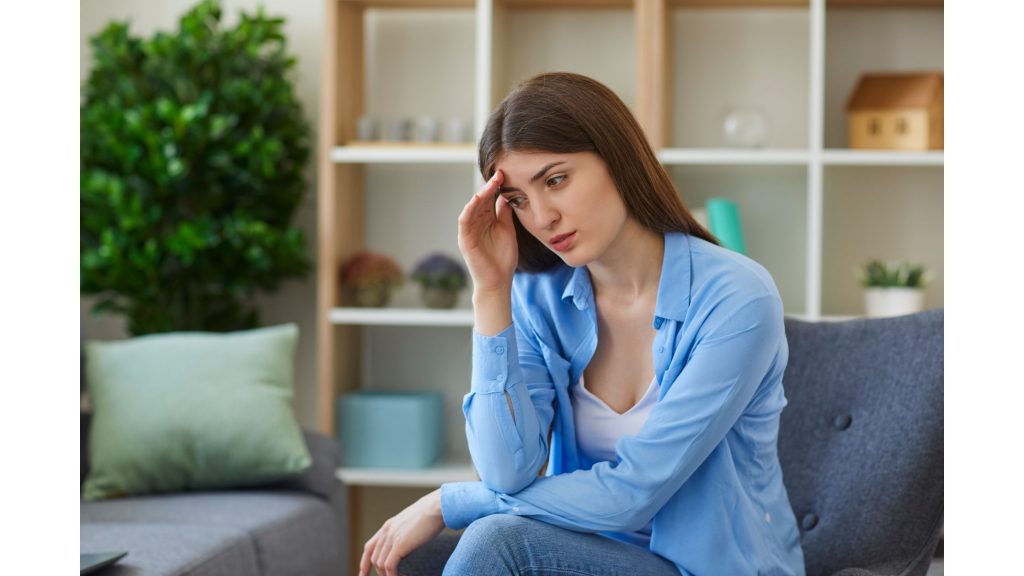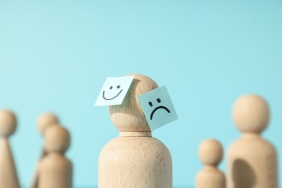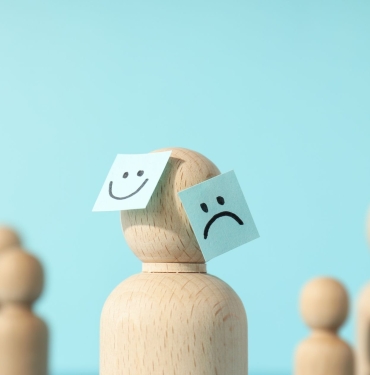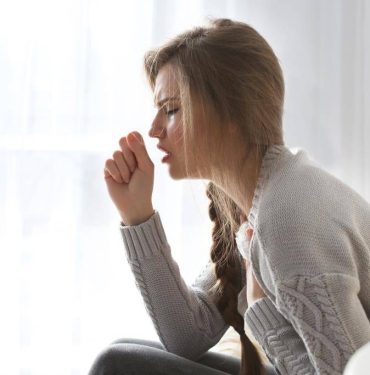Depression is a serious mental health problem that affects the lives of many people. Depression manifests itself with emotional, physical and cognitive symptoms and can negatively affect quality of life. In this article, you will find detailed information on the symptoms, causes and treatment methods of depression.
Symptoms of Depression
Depression, It is defined by various symptoms and these symptoms may vary from person to person. The most common symptoms of depression may be:
- Emotional Symptoms:
- Feeling sad, dejected, or empty all the time.
- Apathy and lack of pleasure.
- Feelings of hopelessness and helplessness.
- Do not become angry or irritable easily.
- Physical Symptoms:
- Fatigue and lack of energy.
- Insomnia or excessive sleeping.
- Appetite changes and weight loss or gain.
- Aches, headaches and digestive problems.
- Cognitive Symptoms:
- Difficulty concentrating.
- Difficulty making decisions.
- Don't blame yourself or feel worthless.
- Thoughts of death or suicide.
- Social Symptoms:
- Social withdrawal and isolation.
- Decline in work or school performance.
- Relationship problems.
Symptoms of depression may vary depending on the stress a person is experiencing, age, gender and genetic factors. If symptoms persist for a long time and affect daily life, it is important to consult a specialist.
Causes of Depression
Although the exact cause of depression is not known for certain, it is generally thought to occur as a result of the interaction of more than one factor. These factors may include:
- BioPsychosocial Factors:
- Genetic predisposition: Family history may increase the risk of depression.
- Chemical imbalances: An imbalance of neurotransmitters in the brain can lead to depression.
- Stress: Stress factors such as traumatic events, job loss, or relationship problems can increase the risk of depression.
- Environmental Factors:
- Abuse or neglect: Childhood maltreatment may increase the risk of depression.
- Difficult living conditions: Poverty, homelessness, or unemployment can trigger depression.
- Social isolation: Loneliness and lack of social support can increase the risk of depression.
- Psychological Factors:
- Low self-esteem: Lack of self-confidence can trigger depression.
- Negative thought patterns: Negative thoughts about oneself can worsen depression.
Treatment of Depression
Treating depression can be a complex process and differ for each individual. However, commonly used methods to treat depression may include:
- Psychotherapy (Talk Therapy):
- Individual therapy: Focuses on the individual's emotional problems and thought patterns.
- Group therapy: Provides a supportive group environment to cope with depression.
- Medication:
- Antidepressant medications can help restore the balance of neurotransmitters.
- Regular Exercise and Healthy Nutrition:
- Physical activity can help release happiness hormones in the body.
- A healthy diet can balance energy levels.
- Social support:
- Maintaining relationships with family and friends can reduce social isolation.
- Rest and Relaxation Techniques:
- Techniques such as yoga, meditation and deep breathing can reduce stress.
- Electroconvulsive Therapy (ECT):
- It is a method used in the treatment of severe depression.
Depression treatment varies depending on a person's needs and the severity of depression. Starting treatment early and consulting a specialist can alleviate the effects of depression and improve quality of life.
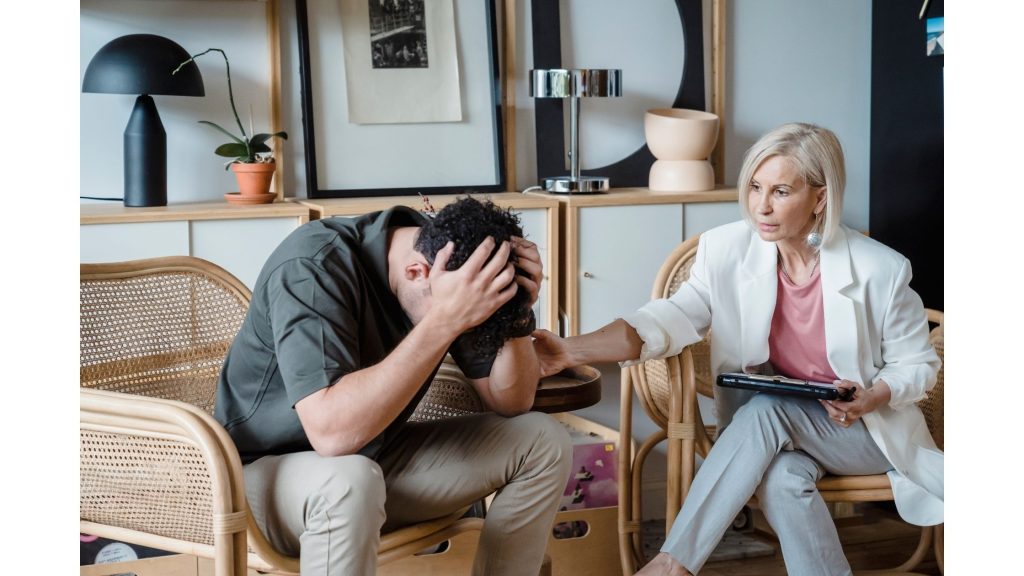
Overcoming Depression
Dealing with depression can take time and patience. However, below are some strategies that can help you overcome depression:
- Professional Help: The first step is to consult a specialist such as a psychiatrist or psychotherapist. Professional guidance is critical to diagnosing depression and creating an effective treatment plan.
- Medication: If your specialist recommends drug treatment, you should use the drugs regularly. Medications can correct chemical imbalances and help relieve symptoms.
- Psychotherapy: Therapy can help you address the thought patterns and emotional issues underlying depression. Individual therapy or group therapy can help different people in different ways.
- Social support: Connecting with family and friends and sharing your feelings can provide emotional support. Try to avoid social isolation.
- Regular Exercise: Physical activity can release natural “happy hormones” called endorphins and improve overall mental health.
- Healthy eating: A balanced and healthy diet is important for body and brain health. You may feel better by limiting your consumption of fast food and sugar.
- Stress Management: Stress reduction techniques such as yoga, meditation, or deep breathing can help you relax mentally.
- Regular sleep: Establishing a good sleep routine and getting enough sleep can relieve symptoms of depression.
- Goal Setting: Setting small goals and achieving them step by step can reduce feelings of hopelessness and increase motivation.
- Positive Thought Patterns: You can improve mental health by recognizing negative thought patterns and creating positive thought patterns.
Tips to Prevent Depression and Feel Good
To prevent depression or relieve symptoms, you can consider the following tips:
- Regular Exercise: Doing regular physical activity at least a few days a week helps release endorphins, which are happiness hormones, in the body. This may reduce the risk of depression.
- Healthy eating: A balanced and nutritious diet can meet the needs of your body and brain. It is also important to limit consumption of sugar and processed foods.
- Regular sleep: Getting adequate, quality sleep is an essential factor for mental health. Review your sleep patterns and pay attention to sleep hygiene.
- Stress Management: Try different techniques to deal with stress. Methods such as yoga, meditation, deep breathing exercises and relaxation techniques can reduce stress.
- Social Links: Spend time with family and friends regularly. Avoid social isolation and maintain relationships that provide emotional support.
- Positive Thought Patterns: Be kind to yourself and try to recognize negative thought patterns and transform them into positive thoughts.
- Hobbies and Interests: Make time for activities you enjoy. Your hobbies and interests can bring you happiness and satisfaction.
- Professional Help: When symptoms begin or worsen, seek help from a specialist without delay. Early intervention can increase the chances of recovery.
- Internet and Social Media Use: Limiting internet and social media use can reduce the effects of comparisons and negative content.
- Good Care for Yourself: Take good care of yourself physically and emotionally. Reward yourself and prioritize your needs.
Depression is a common mental health problem and affects many people's lives. However, it is possible to cope with depression and achieve a better quality of life. In this article, we have provided comprehensive information about the symptoms, causes and treatment methods of depression.
Symptoms of depression can occur in emotional, physical, cognitive and social areas. However, symptoms may vary and may occur at different levels of severity in each individual. The causes of depression often arise from a combination of biological, psychological and environmental factors.
Treatment options include psychotherapy, medication, physical activity, healthy nutrition and social support. Treatment for depression may vary depending on the person's needs and the severity of symptoms. However, early diagnosis and getting professional help are important in overcoming depression.
To prevent depression and relieve symptoms, it is important to make healthy lifestyle choices, manage stress, create social connections and positive thought patterns. Every individual is different, so it is important to develop strategies that suit your own needs and circumstances.
Overcoming depression is possible and treatable. Taking good care of yourself and your loved ones, caring about mental health, and seeking professional support can help you live a healthier, more fulfilling life.
Please note that this article is for informational purposes only and it is important to consult a professional to evaluate your personal health condition or make a decision about treatment options.

